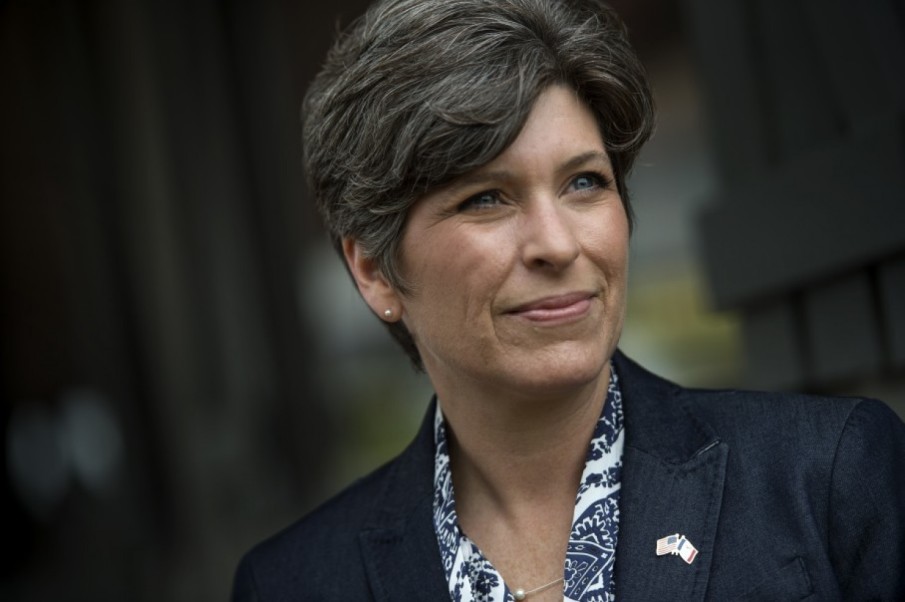Senator Joni Ernst (R-IA), the first female veteran to be elected to the U.S. Senate, agreed to an exclusive interview with SOFREP following her speech at the Conservative Political Action Conference in Washington, D.C., on March 3, 2016. Senator Ernst served in the U.S. Army for 23 years, retiring as a lieutenant colonel in the Iowa Army National Guard in 2015, and is a member of the Senate Armed Forces Committee. She’s been a powerful advocate for veterans on the national stage.
SOFREP: Senator, as I’m sure you know, the Defense Department recently lifted gender-based restrictions on all MOS’s. Do you think physiological accommodations should be made for women entering training for these MOS’s, or should the standards be kept the same for both sexes?
Senator Ernst: I just want to declare that I’m in absolute support of these young ladies and their various opportunities to serve—as long as they’re not lowering the standards and we’re not forsaking our combat efficacy. I don’t think the current administration has wanted to move this forward in a thoughtful manner. We need a different plan, something fully developed. We don’t want to rush women into these positions without making sure they have the skills necessary to integrate seamlessly.
Do you feel that women should have to register for selective service?
I think in this situation, because the administration has opened up all these positions to women, it should be the administration that makes that recommendation. They took down the barriers for women to serve in those combat roles, which opens the opportunity for selective service, but it’s the administration that has done that. I want to hear what the administration has to say. I’m pushing it back on the administration. They have rushed through a number of these situations.
I believe in integrating women into a combat role, but we have to think about it and do it carefully. We don’t want to see standards decrease. I don’t want to see standards decrease, and I think most women that are competing for these positions don’t want to see standards decrease, either. We need to move forward in a methodical manner, making sure we’re not harming our women more than we’re helping them.
According to the Washington Post, the number of veterans on wait lists has risen 50 percent in the last year alone, huge bonuses have been paid out to VA officials, veterans can’t get through on suicide hotlines, and VA executives have been caught fraudulently obtaining hundreds of thousands of dollars in relocation expenses. It’s obvious at this point that we’re dealing with a systemic issue. What can be done to fix the VA?
We know there are huge issues within the VA, whether it’s the suicide hotline or the lack of mental-health support available to our veterans at the VA, or the extremely long waiting lists just to get an appointment at the VA. What we’re seeing is bureaucracy at its absolute worst. We need to be sorting through this—not only Congress, but this administration as well. We need the expertise coming from our physicians and our veterans in order to make the system better.
We’re so wrapped up in bureaucracy. I think we need to start moving our veterans out into their own communities, allowing them greater access and greater choice, and if that means going through a non-VA provider, I believe that’s what we should do. We need to figure this out. We have so many young veterans now, and they’re going to be out there for a very long period of time. We want to make sure that we’re supporting them. I say often that our veterans have fought very hard for us; it’s time for us to be fighting very hard for them.
What are your thoughts on the controversy regarding the San Bernardino terrorist’s iPhone and the FBI’s request for Apple to create a backdoor to access it?
I have mixed emotions about this particular issue. On one side I’m sympathetic to Apple, because the government is going to Apple and telling them to create a brand new program that would allow them to hack into phones. That’s troubling to me. I don’t want to see a government that comes into private industry and tells them, “You will do this for our federal government.” I think there are issues with that.
Already have an account? Sign In
Two ways to continue to read this article.
Subscribe
$1.99
every 4 weeks
- Unlimited access to all articles
- Support independent journalism
- Ad-free reading experience
Subscribe Now
Recurring Monthly. Cancel Anytime.
But I also see their need, in the case of national security, when there are terrorist threats out there, to take action. If there’s a way we can retrieve information, then we need to explore it. But these are discussions we have not had yet. We are living in a technologically advanced age. We have some tough balancing to do. This is a different day and age, and we need to treat it as such.
What, in your opinion, poses the greatest threat to our national security?
I don’t think there is any one issue I can address on any one day, and that’s a really sad statement. We’re living in such a world of turmoil right now. It could be North Korea, it could be Russia, it could be terrorists that are coming into our country. The FBI has stated that ISIS is in all 50 states. There are so many threats out there. It really depends on the day, the hour, the minute.
Right now, we have an administration that refuses to acknowledge that we have issues with our national security. The fact of the matter is, these terrorist threats are growing. The power of these rogue nations is growing, yet we refuse to address them.
(Featured image courtesy of washingtonpost.com)










COMMENTS